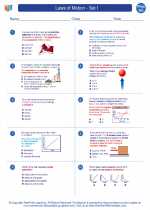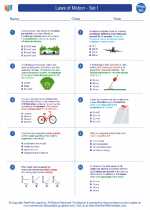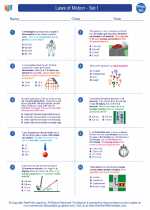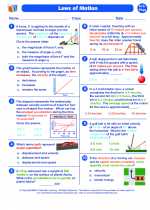Tectonics: Understanding Earth's Dynamic Processes
Tectonics is a branch of geology that deals with the processes that have shaped the Earth's lithosphere and continue to influence its structure and surface features. It encompasses the study of the movement and deformation of the Earth's crust, the formation of mountain ranges, earthquakes, and the distribution of geological resources.
Key Concepts in Tectonics
- Plate Tectonics: The theory that the Earth's outer shell is divided into several plates that move and interact at their boundaries, leading to the formation of geological features.
- Earthquakes and Faults: The sudden release of energy caused by the movement of the Earth's crust along faults, which are fractures in the Earth's crust.
- Volcanism: The process by which molten rock, ash, and gases are expelled through the Earth's surface, often leading to the formation of volcanic mountains and landforms.
- Mountain Building: The processes that lead to the formation of mountain ranges, including folding, faulting, and volcanic activity.
- Geological Resources: The distribution of natural resources such as minerals, fossil fuels, and groundwater, which are influenced by tectonic processes.
Study Guide for Tectonics
To gain a comprehensive understanding of tectonics, students should focus on the following topics:
Plate Tectonics
- Learn about the different types of plate boundaries, including divergent, convergent, and transform boundaries.
- Understand the evidence supporting the theory of plate tectonics, such as the distribution of earthquakes, volcanoes, and magnetic anomalies on the ocean floor.
- Explore the driving forces behind plate tectonics, including mantle convection and slab pull.
Earthquakes and Faults
- Study the causes of earthquakes and the different types of seismic waves they produce.
- Examine the concept of stress and strain in the Earth's crust, and how it leads to the formation of faults.
- Understand the methods used to measure and monitor earthquakes, as well as the implications for earthquake hazard assessment and mitigation.
Volcanism
- Explore the types of volcanic eruptions and their associated hazards, such as pyroclastic flows, lahars, and gas emissions.
- Understand the factors that influence the explosivity of volcanic eruptions, including magma composition and gas content.
- Examine the global distribution of volcanic activity and the formation of volcanic landforms.
Mountain Building
- Learn about the processes of folding and faulting, and how they contribute to the formation of mountain ranges.
- Explore the concept of isostasy and its role in the uplift and subsidence of mountain belts.
- Study specific examples of mountain ranges and their geological history, such as the Himalayas, the Andes, and the Rockies.
Geological Resources
- Examine how tectonic processes influence the formation and distribution of mineral deposits, oil and gas reservoirs, and groundwater aquifers.
- Understand the concept of sedimentary basins and their role in the accumulation of fossil fuels.
- Explore the environmental and economic implications of accessing and utilizing geological resources.
By gaining a strong grasp of these key concepts and topics, students can develop a deep understanding of tectonics and its profound impact on the Earth's geological and environmental systems.
[Tectonics] Related Worksheets and Study Guides:
.◂Physics Worksheets and Study Guides High School. Laws of Motion - Set I
Worksheet/Answer key Laws of Motion - Set I
Laws of Motion - Set I  Worksheet/Answer key
Worksheet/Answer key Laws of Motion - Set I
Laws of Motion - Set I  Worksheet/Answer key
Worksheet/Answer key Laws of Motion - Set I
Laws of Motion - Set I  Worksheet/Answer key
Worksheet/Answer key Laws of Motion - Set I
Laws of Motion - Set I 

 Worksheet/Answer key
Worksheet/Answer key
 Worksheet/Answer key
Worksheet/Answer key
 Worksheet/Answer key
Worksheet/Answer key

The resources above cover the following skills:
PHYSICAL SCIENCE (NGSS)
Energy
Students who demonstrate understanding can:
Develop and use models to illustrate that energy at the macroscopic scale can be accounted for as either motions of particles or energy stored in fields.